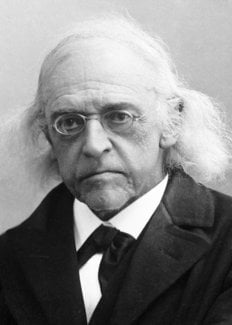Theodor Mommsen
Biographical

Theodor Mommsen (1817-1903), the greatest classical historian of the nineteenth century, was born in Garding, Schleswig, the son of a Protestant minister. He read law and classics at Kiel from 1838-43, and after a few years in France and Italy and a short career in journalism, he became a professor of law at the University of Leipzig. His involvement in the revolution of 1848-49 led to his dismissal in 1850. After holding academic positions at the universities of Zürich and Breslau he was appointed to the chair of Ancient History at the University of Berlin in 1858. He was permanent secretary of the Prussian Academy of Arts and Sciences. In the seventies he was an active and prominent member of the Prussian Parliament, first as a National Liberal and later as a Liberal.
Mommsen’s many writings – a bibliography up to 1887 lists over 900 items – revolutionized the study of Roman history. He was the general editor of, and chief contributor to, the Corpus Inscriptionum Latinarum, the gigantic collection of Roman inscriptions published by the Berlin Academy (1867-1959). This work laid the foundations for a systematic study of Roman government, administration, economics, and finance. Mommsen’s books on Roman coinage and on Roman constitutional and criminal law are still classics in their fields. But he was more than a brilliant scholar with a tremendous grasp of detail and a powerful talent of organization. He was a vivid and powerful writer. His passionate involvement in the revolution of 1848-49 deeply affected the point of view of his main work, the incomplete Römische Geschichte (1854-55, 1885) [History of Rome]. His contempt for the senatorial oligarchy and the «weakling» Cicero, as well as his boundless admiration for the energy and statesmanship of Julius Caesar, for a long time dominated the standard view of the history of that era. The work covers the history of the Roman Republic; a history of the Empire was planned but never written, except for a volume on provincial administration under the Empire.
This autobiography/biography was written at the time of the award and first published in the book series Les Prix Nobel. It was later edited and republished in Nobel Lectures. To cite this document, always state the source as shown above.
Theodor Mommsen died on November 1, 1903.
The Nobel Foundation's copyright has expired.Nobel Prizes and laureates
Six prizes were awarded for achievements that have conferred the greatest benefit to humankind. The 14 laureates' work and discoveries range from quantum tunnelling to promoting democratic rights.
See them all presented here.
